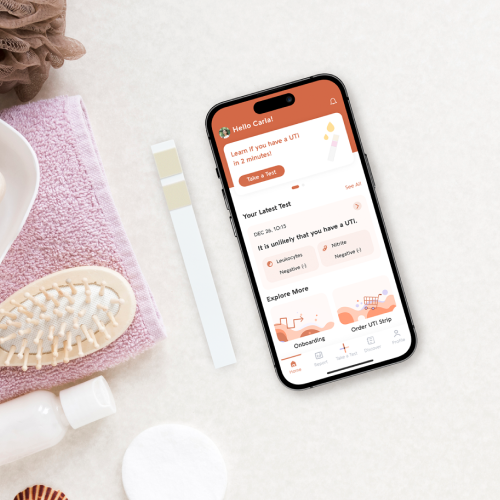

Ovulation is an important part of the reproductive cycle and a key factor in a woman's ability to have children. It happens when a mature egg is released from the...
Ovulation is an important part of the reproductive cycle and a key factor in a woman's ability to have children. It happens when a mature egg is released from the...

Fertility is an essential part of reproductive health, and managing it can be a proactive step toward achieving your family planning goals. It's important to know about fertility and all...
Fertility is an essential part of reproductive health, and managing it can be a proactive step toward achieving your family planning goals. It's important to know about fertility and all...

Understanding the menstrual cycle phases is crucial as it plays a pivotal role in female reproductive health, preparing the female body for the possibility of pregnancy each month. Whether you're...
Understanding the menstrual cycle phases is crucial as it plays a pivotal role in female reproductive health, preparing the female body for the possibility of pregnancy each month. Whether you're...

Discover raw, unfiltered wellness journey of Emily Jane with our brutally honest diary. Learn how Vivoo urine tests transformed her routine and revealed unexpected truths about her wellness.
Discover raw, unfiltered wellness journey of Emily Jane with our brutally honest diary. Learn how Vivoo urine tests transformed her routine and revealed unexpected truths about her wellness.

Magnesium is an essential mineral that is functional in over 600 enzyme reactions in the body. Its plethora of functions include improvement of muscle and nerve function, boosting the immune...
Magnesium is an essential mineral that is functional in over 600 enzyme reactions in the body. Its plethora of functions include improvement of muscle and nerve function, boosting the immune...

Welcome to the ultimate guide to calcium, an essential mineral that plays a crucial role in maintaining your overall wellness. In this article, we'll explore what calcium is, how it...
Welcome to the ultimate guide to calcium, an essential mineral that plays a crucial role in maintaining your overall wellness. In this article, we'll explore what calcium is, how it...

Find out why Vitamin D is good for you, what happens if you don't get enough, and ways to fix it!
Find out why Vitamin D is good for you, what happens if you don't get enough, and ways to fix it!

Just as each season brings its own unique challenges for our bodies, winter months can present a few particular difficulties for our skin. The cold air, temperature fluctuations, dry indoor...
Just as each season brings its own unique challenges for our bodies, winter months can present a few particular difficulties for our skin. The cold air, temperature fluctuations, dry indoor...

Boost your wellness today by discovering the benefits, foods, and deficiency supplements in the ultimate vitamin C guide!
Boost your wellness today by discovering the benefits, foods, and deficiency supplements in the ultimate vitamin C guide!

The immune system plays an important role in keeping you healthy and protecting you from external threats. While there are various factors that contribute to a strong immune system, your diet...
The immune system plays an important role in keeping you healthy and protecting you from external threats. While there are various factors that contribute to a strong immune system, your diet...

CES is our yearly tradition. Every year, we can’t wait to share what’s new. New products. Big announcements. And this year? We’re just as excited.
CES is our yearly tradition. Every year, we can’t wait to share what’s new. New products. Big announcements. And this year? We’re just as excited.

At Vivoo, our mission has always been to make health data accessible to everyone, everywhere. Over the past six years, we’ve continuously innovated and expanded our product offerings, establishing ourselves...
At Vivoo, our mission has always been to make health data accessible to everyone, everywhere. Over the past six years, we’ve continuously innovated and expanded our product offerings, establishing ourselves...

Content Manager

Nutrition Specialist

Head of Wellness

Head of R&D

R&D Specialist

R&D Specialist











